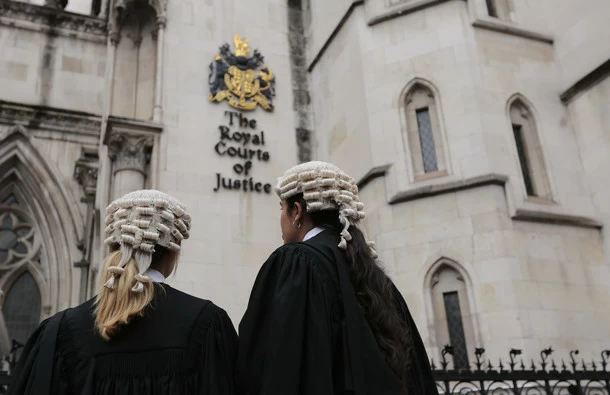
The Future Lawyer Weekly Briefing – W/C 18th November 2024
November 17, 2024
Daniel Sokol – Alpha Academic Appeals
November 20, 2024By Monique Simone Fremder.
Reading time: four minutes
In a society where legal careers have traditionally been reserved for the wealthy and powerful, Lawyers Who Care (LWC) is dedicated to empowering care-experienced individuals to pursue law. This non-profit organisation dismantles barriers and opens doors through mentorship, education, and work experience.
UCAS define a care experienced student as someone who has: ‘spent time living with foster carers under local authority care, in residential care (e.g. a children’s home), looked after at home under a supervision order, or in kinship care with relatives or friends, either officially (e.g. a special guardianship order) or informally without local authority support’.
Lawyers Who Care
Founded in 2024 by Lucy Barnes, a pupil barrister at East Anglian Chambers, in partnership with Kate Aubrey-Johnson of Garden Court Chambers, LWC seeks to address the unique challenges faced by care-experienced individuals in the legal profession. Inspired by Lucy’s own journey and the obstacles she overcame, LWC raises awareness and enhances pathways for this resilient group to enter the legal field. This initiative marks a crucial step toward their inclusion and the development of a more supportive and diverse legal community.
Quantifying Invisible Inequalities: Statistics on Care-Experienced Individuals
- 41% of care leavers aged 19-21 are not in education or employment, compared to 12% of their peers (Association for Young People’s Health).
- Only 14% of foster care children attend university, versus 47% of their non-care-experienced peers (Independent Review of Children’s Social Care).
- 24% of the prison population and 26% of the homeless population have spent time in the care system (Department for Education).
For further insights into another group with invisible inequalities, read ‘Unspoken discrimination of disabled in the legal profession’: https://thestudentlawyer.com/2024/10/13/unspoken-discrimination-of-disabled-in-the-legal-profession/
The Mission
LWC’s mission is straightforward: to cultivate a more inclusive legal profession by supporting young people from care backgrounds to pursue and succeed in legal careers.
Challenges Faced by Care-Experienced Youth
Care-experienced individuals often face instability, living in unfamiliar environments. Constant adaptation to new settings creates disorientation, making it hard for them to feel settled or build a foundation for success.
Separation from parents and siblings adds emotional strain, deepening feelings of grief and isolation. This, combined with the challenges of integrating into new family dynamics, significantly impacts their mental well-being. Meanwhile, frequent school changes, inconsistent mentorship, and a lack of stable role models further disrupt their educational and professional development. These barriers often make pursuing careers in law or other demanding professions seem unattainable.
Lucy identified five key barriers to accessing the legal profession:
- Lack of Mentoring
- Limited Legal Network
- Absence of Support
- Stigma
- Financial Constraints
- Cultural Barriers
The Method
Two-year Mentorship Program
The extended duration provides stability and continuity, fostering deeper mentor-mentee relationships and sustained support. It enables mentees to build lasting networks and support systems crucial for their career and personal development, while also encouraging engagement longer term to become familiar with aspects of the legal profession, at a more manageable pace.
Paid Work Experience
LWC supports increased access to paid legal opportunities and work experience. This ensures that care-experienced individuals can afford to participate, feel valued, and gain transformative real-world experience. This approach not only supports their professional growth but also enhances their sense of self-worth and contribution to the legal field.
Earlier legal Opportunities
LWC partners with initiatives like Matrix Chambers to engage disadvantaged youth, particularly ages 16 and 17, in meaningful legal experiences. These programs immerse young people in legal environments, offering hands-on and inspiring opportunities. Early exposure demystifies the legal field, equipping participants with the skills, knowledge, and confidence to pursue law degrees and careers.
School Outreach
LWC will soon expand its impact by engaging with schools in disadvantaged areas. This initiative enables legal professionals to visit schools, reducing intimidation about the profession and inspiring future lawyers.
The Impact
LWC transforms the prospects of care-experienced individuals by building confidence, skills, and access to mentors who create lasting opportunities for success in legal careers. By supporting care-experienced individuals, LWC diversifies the legal profession, introducing new voices and perspectives that enhance empathy, diversity, and representation.
Recognising this group within chambers and law firms enriches the legal field and strengthens the profession’s ability to serve society effectively and equally. Moreover, it empowers young people in care to realise their potential despite current challenges.
For further insight into inclusion in law, read ‘National Inclusion Week 2024: How to Create Lasting Change in the Legal Profession’: https://thestudentlawyer.com/2024/09/19/national-inclusion-week-2024-how-to-create-lasting-change-in-the-legal-profession/
The Future of Lawyers Who Care
LWC is dedicated to expanding its influence and improving access to legal opportunities for care-experienced youth. The organisation aims to establish lasting partnerships with schools, social services, and legal professionals, while integrating legal literacy programs into education and promoting activities like moot courts and enhanced mentorship programs. Ultimately, LWC is transforming the legal profession into a more inclusive and equitable space, advocating for greater visibility and inclusion of care-experienced individuals to ensure the profession reflects the diversity of the communities it serves.




